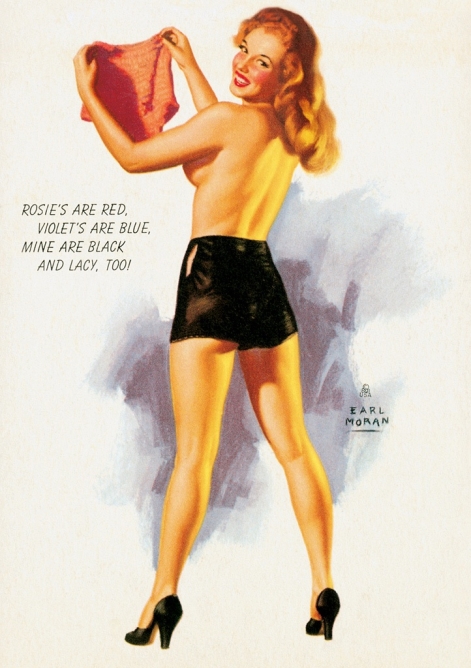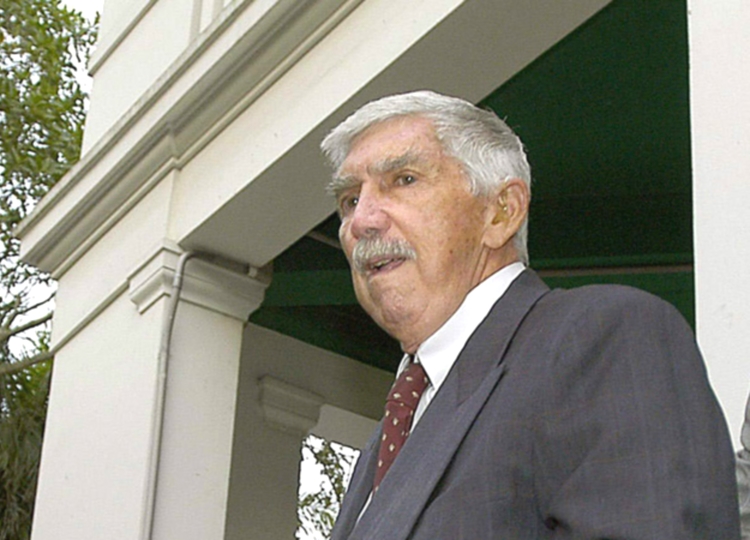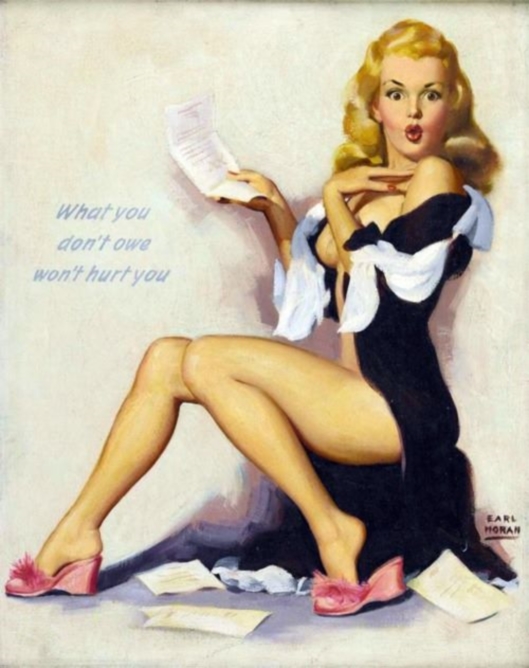Best Friends Forever: Studio President and Gangster
Many books and websites have asserted, and still assert, that Anthony Accardo, through Handsome Johnny Roselli, threatened and thereby forced Harry Cohn into giving Marilyn a contract. Allegedly the studio president was indebted to the MOB generally and to the Chicago Outfit specifically; and Chicago owned Marilyn’s career. That scenario, however, suffers from several serious afflictions, one of which is the implication that Cohn initially refused to sign Marilyn. Cohn’s initial recalcitrance resulted in threats of physical harm, even threats of death; but more importantly, perhaps, that scenario implies the following: 1) friction existed between Cohn, Roselli and the Chicago Outfit; and 2) Roselli, void of compunction, easily and happily delivered Chicago’s death threats to Cohn.
Certainly, Columbia’s president counted gangsters among his acquaintances and even his friends, as did other studio presidents along with other persons affiliated with the movie industry during its Golden Age, moguls, starlets and real stars. In fact, according to Tere Tereba and her Mickey Cohen biography, for many years Roselli’s great friend was Harry Cohn, the boss of Columbia Pictures (Tereba 94). This friendship was also memorialized by Bob Thomas in his Cohn biography. Within that biography, Thomas provided Roselli with an alias: In these pages, Thomas began chapter 6, he shall be called Charlie Lombard. No explanation provided; but I assume Thomas named Roselli Charlie Lombard because Roselli was still among the living in 1967; however, when my quotations from the Thomas biography include that alias, I am simply going to use Roselli, enclosed by parentheses.
According to both Thomas and Tereba, Roselli met Cohn in the mid-thirties as a result of Cohn’s near addiction to betting on equine foot racing contests. Almost immediately, the two became friends; Roselli moved into the building where Cohn lived; and they often took trips together (Thomas 179). Horrible Harry even offered to make Handsome Johnny a Columbia Pictures’ producer, offered a salary of five-hundred dollars per week; but Roselli declined that more than generous offer. According to Tereba, the mobster admitted that he could fleece and scam considerably more money than five-hundred dollars each week from stupid gamblers while he engaged in both making book and sharking at cards (Tereba 94-95).
When the opportunity to purchase twenty-six percent of the Aqua Caliente track in Tijuana presented itself to Roselli, his wealthy friend, the studio president, provided a loan of $25K for the investment. Roselli repaid Cohn as agreed and within the time allotted. He also included a check for interest at six percent, an amount the lender refused to accept: Cohn tore up the interest check. In fact, Roselli was so grateful to his movie mogul pal that he bought two rubies, mounted each into rings, kept one for himself and presented the other to Cohn, who wore the symbol of their friendship continually and everywhere he went (Thomas 179).
According to Thomas, because of a desire to escape the world of gambling and those associated therewith, Handsome Johnny sold his interest in the Mexican racetrack and landed a job with the Motion Picture Producers and Distributors of America (MPPDA), the Hays Office, as Pat Casey’s assistant negotiating contracts with Labor unions. Roselli’s position in that office put him on the fast track to collide with George Browne, president of the International Alliance of Theatrical Stage Employees (IATSE), and mobster Willie Bioff.
I do not intend to get too embroiled in the Browne–Bioff Extortion Scandal, which will also appear in the next part of this section; but briefly, the protection scam, which became a major Hollywood scandal, began in Chicago’s entertainment industry in 1934 and then moved onto the golden streets and into the golden studios of Hollywood where it rattled like a snake for several years, encircled and injected its venom into many of the Dream City’s most powerful studio presidents, including Harry Warner, Louis B. Mayer, Nicholas Schenck and his brother, Joseph, Marilyn’s future friend and benefactor. The labor focused scam perpetrated by Browne and Bioff also involved Harry Cohn and Columbia Pictures, then still an occupant of Hollywood’s Poverty Row. In order to avoid conflict and trouble with labor unions, the extortionists, but primarily Bioff, demanded from Cohn the payment of a relatively small $25K tribute; but before agreeing to pay Bioff, Cohn consulted with his MOB affiliated friend, Johnny Roselli, seeking advice.
According to Bob Thomas: (Roselli), who was familiar with the Bioff operation, told Cohn, “Don’t give him a nickel” (Thomas 182). Cohn accepted Roselli’s advice; so, in November of 1937, pickets appeared at Columbia Pictures, Inc. and began a shouting parade along its entrance. Once again, Cohn asked Roselli for advice; Roselli promised to intercede. During a telephone call to George Browne’s Chicago office from Willie Bioff’s Hollywood office, Roselli learned that the move against Columbia Pictures was primarily Willie Bioff’s idea. According to Thomas, Handsome Johnny spoke frankly and gruffly to Willie: This is a spite thing, and you’re not going to get away with it. You meet with Cohn and get it settled (Thomas 183). The result: the IATSE strike against Columbia lasted only one day and Bioff withdrew his demand for a tribute.
In May of 1941, federal prosecutors indicted Browne and Bioff for mail fraud, extortion, racketeering and, just to complete the loop, also income tax evasion. To garner leniency and reduced punishment for his crimes, Bioff agreed to cooperate with law enforcement, agreed to reveal the names of the involved Chicago mobsters. Johnny Roselli was one of Bioff’s names, even though at that time he was a resident of Los Angeles working for the Hays Office and the MPPDA.
In early 1942, federal prosecutors indicted John Roselli for racketeering due to his purported involvement in the Browne–Bioff extortion scheme although Roselli claimed that he had been falsely accused: he was not actually involved in the actual extortion. In December of the same year, in an attempt to avoid prosecution, Roselli enlisted in the US Army and served until his arrest in March of 1943. During the ensuing ten month trial, Harry Cohn testified on Roselli’s behalf; and during his testimony, Horrible Harry admitted to his friendship with Handsome Johnny. They were still friends, he told the jury; and then he described what really happened in 1937. Even though a fellow might conclude that Roselli’s friendship with Cohn argued against the former’s active part in any scheme to extort money from the studio president, and Roselli’s employment by the movie industry argued against his active part in any scheme to extort money from that industry, the jury still convicted Handsome Johnny. In fact, juries convicted each of the indicted defendants and judges rewarded each with a ten year prison term along with a $10K fine. All went to prison except two: the Justice Department arranged for the commutation of Bioff’s sentence as a reward for his cooperation and Frank Nitti killed himself; and the circumstances surrounding Nitti’s suicide were rather curious.
According to the Chicago Tribune, in an article which appeared on June the 29th in 1987, the coroner ruled that Al Capone’s former enforcer committed suicide while temporarily insane and in a despondent frame of mind.1Link to the Tribune article:
<https://www.chicagotribune.com/news/ct-xpm-1987-06-29-8702170754-story.html>As an aside, in Bryan De Palma’s The Untouchables, the director depicted Frank Nitti, the man who succeeded Al Capone, using the handsome actor Billy Drago. The real Nitti was just the opposite. According to the movie, Elliot Ness launched Nitti from a courthouse rooftop during Capone’s trial and conviction for tax evasion. True to Hollywood’s common corruption of the facts and the truth, Ness obviously did not toss Frank Nitti from a courthouse rooftop.
Using the name William Nelson, Willie Bioff relocated to Phoenix, Arizona, hoping to enter the out-of-sight, out-of-mind world of obscurity. But, in November of 1955, William Nelson slid behind the steering wheel of his pick-up truck, twisted the ignition key and stepped on a floorboard-mounted starter. Law enforcement and related authorities have never solved the Willie Bioff AKA William Nelson murder by violent explosion.
The US District Court in New York City sentenced Roselli on December the 31st in 1943 and remanded him into custody. On the 4th of April in 1944, prison officials delivered him to the Atlanta Penitentiary; on August the 21st, federal officials transferred him to Leavenworth and then slightly over a month later, transferred him to Terre Haute, Indiana, where he remained until his parole on August the 13th in 1947. Handsome Johnny served only three years and five months of his ten year sentence. According to the FBI, he returned to Los Angeles in October of that year.
According to Thomas, a condition of Roselli’s parole was gainful employment; so he visited his friend, Harry Cohn, who still wore Roselli’s ruby ring. Roselli asked for a job; and even though the movie mogul believed that his friend had been falsely accused and convicted, he denied Roselli’s request: placing a known convict on the studio’s payroll would most certainly produce moans and frowns: The stockholders, he told Roselli, would scalp me. Horrible Harry’s denial angered Handsome Johnny; and even though Cohn offered to obtain a job for Roselli with an agent and offered to send a considerable amount of business to him, according to Thomas, Handsome Johnny walked out of Harry Cohn’s life (Thomas 187). After Cohn’s refusal, Roselli turned to another friend in the movie industry, former child vaudevillian, Bryan Foy, who apparently did not care that Handsome Johnny was a convicted felon.2Roselli allegedly produced three movies for Bryan Foy Productions that were distributed by Eagle-Lion Films, a member of Hollywood’s Poverty Row: He Walked by Night, T Men and Canyon City. Ironically, each movie’s plot involved criminals and crime.Still, a fellow must conclude, which Thomas clearly implied, Cohn’s refusal to hire Handsome Johnny Roselli ended their lengthy friendship.
Several of Roselli’s FBI files, however, contradicted the Thomas account.3According to FBI file 92-3267-7, dated the 15th of December in 1957, authorities arrested Handsome Johnny for a parole violation on the 27th of July in 1948. No disposition indicated.
The Parole Board approved Roselli’s release contingent upon his employment by Bryan Foy, Vice-President in Charge of Production, Eagle Lion Films […], not contingent upon a hope that Roselli would eventually find employment.4Roselli’s salary would have been the princely sum of $65 per week.That being the case, would Roselli have approached Cohn with a job request? Perhaps. And would Cohn’s understandable refusal have angered Roselli so much, considering Cohn offered to help Roselli find an agent’s job elsewhere, according to Thomas, and offered to send Roselli plenty of business, would Cohn’s refusal have angered the mobster so much that he was willing to threaten, possibly even murder his former building mate, traveling companion and best friend forever? I must admit to that possibility, particularly if Chicago had delivered the orders; but even so, it is obvious that Roselli was indebted to Cohn just as much as Cohn was indebted to Roselli; and I have not uncovered any evidence or proof that Harry Cohn was ever actually indebted to the Outfit: a search of the FBI Vault for files pertaining to Harry Cohn did not produce any. So, in consideration of all possibilities, consider the following.
For a moment, let us accept the commonly reported scenario that Chicago owned Marilyn’s career, that Accardo ordered Cohn to hire his starlet, although she was virtually unknown at that time, and that Cohn refused to obey orders. Certainly by that time, Joe Schenck had also recommended Marilyn to Cohn. So why would Cohn refuse to employ her? Why would he risk getting crosswise with the murderous Outfit and Accardo to save Columbia Pictures a $125 per week monetary outlay? I suggest that Cohn would never have done so. Furthermore, if Roselli’s friendship with Cohn can be used as an argument against the former’s efforts to extort the latter, then that friendship can certainly be used as an argument against Roselli’s delivery of threats to murder Cohn. And finally, if Chicago’s Outfit and its boss owned Marilyn’s career, why did the Outfit and Accardo fail to object, why did they and he fail to threaten Cohn with bodily harm or even death when Cohn did not renew the MOB ordered contract of the MOB’s protégé in August of 1948? Why did the Outfit and Accardo fail to force Cohn to keep Marilyn under contract and force him to give her the best roles that Columbia could offer? Not to have done so is illogical and generates reasonable doubt, all things considered, regarding the entire Marilyn Monroe, Chicago MOB and Horrible Harry Cohn contrivance.


